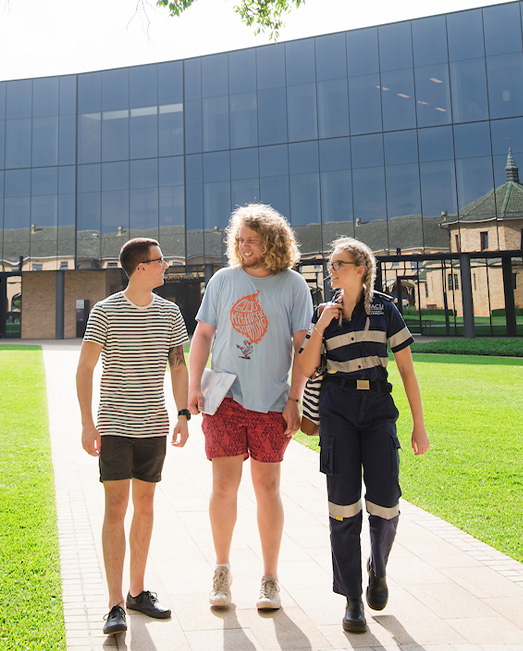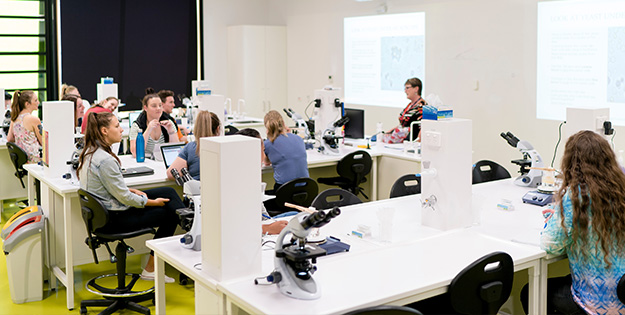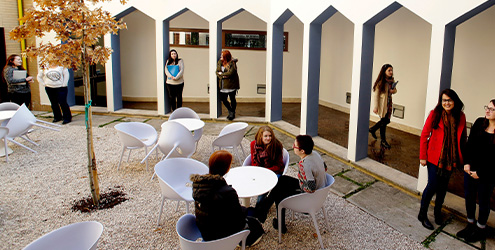Future student
Copyright@ Australian Catholic University 1998-2026 | ABN 15 050 192 660 CRICOS registered provider: 00004G | PRV12008
Copyright@ Australian Catholic University 1998-2026 | ABN 15 050 192 660 CRICOS registered provider: 00004G | PRV12008

The allure of postponing your university course so you can take a break, earn some cash or go travelling can be hard to resist — but it’s not without its risks. We look at some of the potential pitfalls of delaying study.
It’s a tricky time of your life. You’ve completed your final exams, high school is done and dusted and freedom beckons.
Amid the sense of achievement and the excitement of entering a new chapter, many students are left with an important life decision: Do they go straight to uni, start earning cash, or take the year off?
It can be very tempting to stuff your backpack full of travelling gear instead of uni textbooks, especially after the long, arduous year of study.
But while taking a so-called ‘gap year’ has long been a rite of passage for some school-leavers, it seems many of today’s students are wise to the risks of delaying study, instead choosing to break the gap year tradition.
Gap years tend to be popular with those who feel they need a break from study or aren't quite sure what course or career path they should take.
But taking a year off without a clear goal can be “a dangerous choice” and “a huge mistake”, said the Sydney-based Schools Industry Partnership, a non-profit career advice service.

While acknowledging that structured gap years could provide some students with clarity, it warned that a year of adventure often turned into “months of no direction and increasing hopelessness”.
“These young people become more disengaged and often end up long-term unemployed and unhappy, without aspiration or motivation to get onto a sustainable career pathway,” the partnership said.
Proponents of gap years have long touted the benefits of delaying study, but research on the impact of the nature of the gap year is scant.
In his column in The Sydney Morning Herald, ACU’s Professor of Career Education and Development, Jim Bright, pondered whether “drinking cheap beer on a beach in Bali” was a better way of spending a gap year than “meditating with mindfulness in Morocco”.
“There isn’t much literature studying what people do during gap years and what impact that has, so I think the jury’s out,” he told Impact, adding that the key to making the most of a gap year was to have a purpose.
“Doing a gap year because your friends are doing it, with no clear purpose, or doing no more than lying on your parent’s couch playing PlayStation, that’s not a good way of spending your time,” Professor Bright said.
“I’m certainly not an advocate for over-planning but I think you need to balance spontaneity with purpose, and you have to take action, because there’s no use lounging around for six months doing nothing.”
One other risk of taking a gap year was that it “could give you a really unrealistic sense of what life is like”, he added.
“You might get a really strong taste for cheap beer and beaches and forget how to get up in the morning, how to study and be disciplined and how to engage in the life cerebral.”
Despite these warnings, Professor Bright said gap years offered some students a chance to reflect and try new things.

A study of Australian students published in the Journal of Educational Psychology showed that the “desirability and effects of a gap year will differ from student to student”.
“This study sheds timely light on the potential of the gap year for young people's further academic development,” said study author Professor Andrew Martin.
However, the study noted the view of other researchers that “the year off negatively affects academic and workforce outcomes down the road”.
A major reason some students are shunning the idea of delaying study is the fear of damaging their long-term career prospects.
In a 2015 article in The Age newspaper, students explained why they chose against deferring their university courses.
"I know some people who took gap years and just never went back to study," said Charles Pruden, a Year 12 student. "My thoughts in general are that once you're on a roll, you may as well keep going."
That sentiment was echoed by others, including Alessandra Chinsen, a first-year university student who said she was happy with her decision not to take time off.
"Given how much my intellectual capacity had diminished during the summer break, before the start of university, I shudder to think how much more my work ethic would have disintegrated had I taken a whole year off," she told The Age.
Some noted that the gap between the end of high school and the first semester of university was long enough to get a much-needed break from study.

"In fact, it was probably too much time off,” university student Alice Brady said. “By the time March rolled around, I had almost forgotten how to spell 'vocabulary'.”
If the travel bug is biting, there are alternatives that offer the pros of a gap year without all the cons.
An increasing number of Australian university students are reaping the benefits of studying abroad, with more than 1000 ACU undergrads heading overseas each year to travel and study at the same time.
ACU has a campus in Rome and relationships with more than 200 universities and educational institutions in 40 countries, including in Europe, Asia, Africa and the Americas.
“The Rome campus is a wonderful development because it gives students the opportunity to immerse themselves in one of the most exciting and culturally rich cities in the world,” Professor Bright said.
“I think studying abroad is a really attractive thing and courses which build that international connection will be increasingly appealing to students who are keen to experience another culture, and potentially go on to work and live overseas.”

ACU Rome Campus
Not only can students scratch their travel itch without postponing their course, they can also enhance career prospects, make new friends, gain independence and learn a new language.
Meanwhile, modern-day universities are also more flexible about entry paths and deferrals than the tertiary institutions of old.
“Today, universities bend over backwards to accommodate students changing pathways during their degrees, and welcome and support students of all ages and stages,” Professor Bright said. “Dropping in and out of study is a viable and flexible option.”
He advised students to broaden the idea of a gap year to a “gap life”.
“The danger of a gap year is that you look at it as one more year of fun and then it’s drudgery and then you retire and then you die, and I think it’s a very unhealthy way of seeing things,” he said.
“A life of dropping in and out of work and study sounds good to me. It is called lifelong learning.”
Thinking of studying abroad, deferring or looking at alternative entry pathways? Get in touch with ACU.
Copyright@ Australian Catholic University 1998-2026 | ABN 15 050 192 660 CRICOS registered provider: 00004G | PRV12008